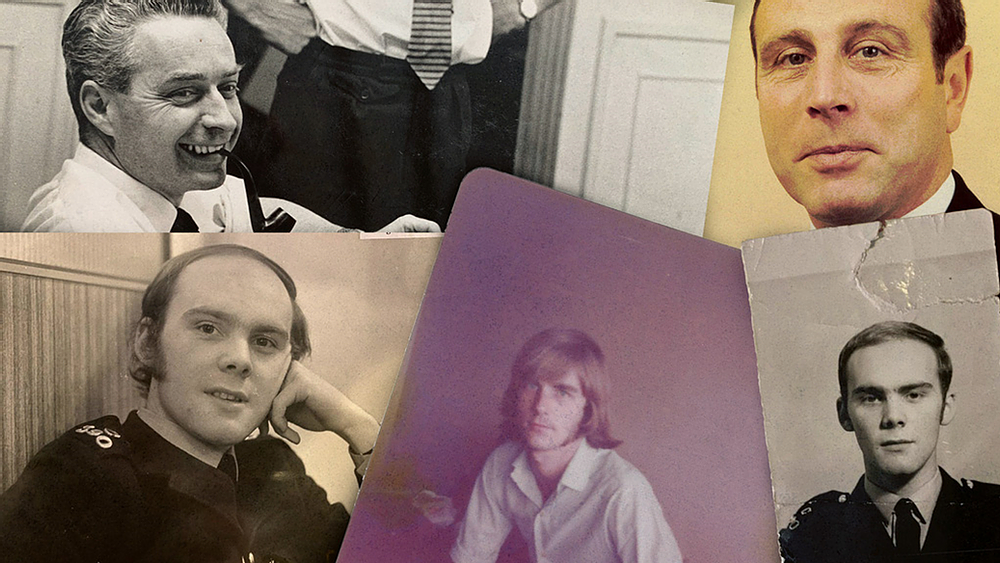Bent Coppers Crossing the Line of Duty episode 3: By the late 1970s, armed robbery had been brought to a state of near-perfection. Seen as a ‘glamour crime’, it was committed by men prepared to take big risks, survive shootouts with the police and die for the prize. But despite violent armed robbers being arrested, evidence was being watered down, and criminals were being granted bail. Money seemed to be passed to bent cops via middlemen to get lawbreakers released.
Despite sweeping changes brought in by Sir Robert Mark in the Metropolitan Police, this final instalment reveals how, in the late 1970s, corruption within the City of London’s CID had grown out of control – and how Operation Countryman was launched in response.
Bent Coppers Crossing the Line of Duty episode 3
Line of Duty
Line of Duty is a British police procedural television series created by Jed Mercurio and produced by World Productions. On 26 June 2012, BBC Two began to broadcast the first series; it was the channel’s best-performing drama series in ten years with a consolidated audience of 4.1 million viewers. Broadcast of the second series began on 12 February 2014; its widespread public and critical acclaim led to the BBC commissioning a further two series. The third series of Line of Duty began on 24 March 2016 on BBC Two, but the following three series were broadcast on BBC One.
In May 2017, the BBC commissioned a sixth series. Filming began in February 2020 but stopped the following month due to the COVID-19 pandemic; it resumed in September. Filming continued until November 2020. Broadcast of the sixth series began on BBC One on 21 March 2021.
Line of Duty is the most popular drama series broadcast on BBC Two and is a winner of the Royal Television Society Award and Broadcasting Press Guild Award for Best Drama Series. It was included in a list of the Top 50 BBC Two shows of all time and in a list of the 80 best BBC shows of all time. The series ranked eighth in The Independent’s list of the twenty greatest police shows of all time and third in a Radio Times poll of the best British crime dramas of all time.
Metropolitan CID – Line of Duty
In the United Kingdom and many former British colonies, Criminal Investigation Department (CID) is the generic name for the branch of a police force to which most plainclothes detectives belong. A force’s CID is distinct from its Special Branch (though officers of both are entitled to the rank prefix “Detective”).
The Metropolitan Police set up a detective branch with eight plainclothes detectives in 1842, thirteen years after it was established in 1829. Detective units were established in the City of London Police and in other major cities and towns from the mid-nineteenth century onwards.
On 8 April 1878 C. E. Howard Vincent re-formed the Metropolitan Police Detective Branch into the CID. Originally, Vincent’s CID was under the direct command of the Home Secretary, but since 1888 it has reported to the Commissioner of Police.
British colonial police forces all over the world adopted the terminology developed in the UK in the 19th and early 20th centuries, and later the police forces of those countries often retained it after independence. English-language media often use “CID” as a translation to refer to comparable organisations in other countries.
The Firm in a Firm – Bent Coppers Crossing the Line of Duty episode 3
In 1969, a petty South London criminal tipped off the Times newspaper that he was being extorted for money, not by other criminals, but by a detective in the Metropolitan police.
Journalists concealed a recording device in his car as he secretly met D.S John Symonds who revealed a hidden world of police corruption of a ‘firm in a firm’ and boasted ‘we’ve got more villains in our game than you’ve got in yours.’
When the explosive article was published in November 1969, it exposed a hidden world of corrupt officers, faked evidence, bribery and blackmail.
A10: The Real AC 12 – Line of Duty
Robert Mark became Commissioner of London’s Metropolitan Police force in 1972. He said he wanted a CID that “catches more criminals than it employs” and one of his very first actions was to set up Britain’s first specialist anti-corruption police unit, A10. This new branch put fear into the heart of corrupt CID detectives and was there to destroy the corrupt traditions of the firm in a firm.
It was the beginning of Mark’s extraordinary battle against his own detectives that would make him a hero for some and a pariah to others. Under his leadership between 1972-1977, nearly 500 police officers were either prosecuted, dismissed or forced to resign.
The Dirty Squad – Bent Coppers Crossing the Line of Duty episode 3
A10’s biggest single investigation was into powerful allegations against senior commanders from the Met’s Obscene Publications Squad, known as the Dirty Squad. Tasked with enforcing the Obscene Publications Act of 1959, instead it was alleged that the squad were effectively running their own protection racket in Soho, taking bribes from porn barons like Jimmy Humphreys.
One of the newspaper scoops of the 1970s exposed Kenneth Drury, commander of the world famous Flying Squad as having been Humphrey’s guest on a luxury all-expenses-paid Mediterranean holiday with their wives.
When Humphreys’ house was raided, they found his diary, which contained detailed records of payments that went into tens of thousands of pounds to many high-ranking officers.
When confronted with his wrongdoing, Drury defended his fraternising with criminals by saying ‘It’s no good going to the vicar’s tea party and trying to gain information about the activities of organised teams of robbers’.
A10’s investigation resulted in 18 officers being sentenced to more than a 100 years imprisonment.
